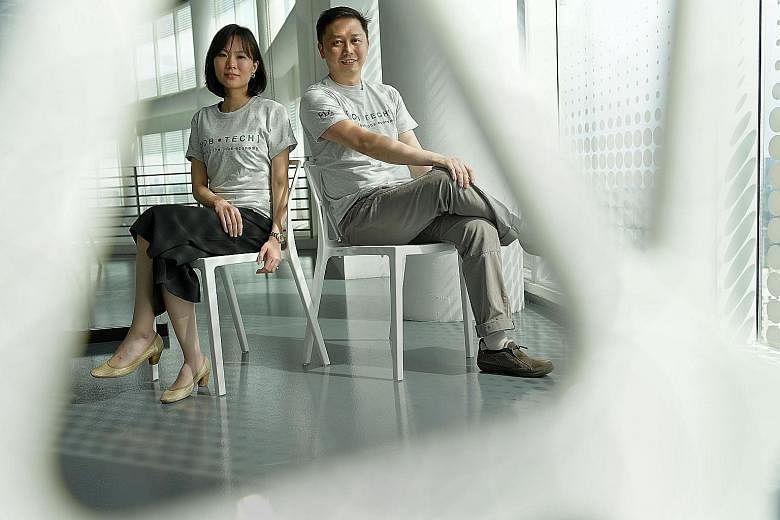A local start-up has made an open offer to Facebook to help sift and label fake news on the social network.
The two-month-old start-up JobTech - which provides an artificial intelligence (AI)-based job search service - posted the open letter to Facebook on Monday.
The start-up is offering to "jointly counteract misinformation", noting that its technology is able to sift out fakes. It has already successfully applied its technology to help job seekers filter out duplicate and bogus posts.
JobTech's letter was a response to a Nov 19 post by Facebook chief Mark Zuckerberg defending his company after it was blamed for allowing pro-Donald Trump fake news to go viral on its network.
JobTech co-founder Ang Wee Tiong said its technology is able to verify if a trending report is fake by cross-checking against reports by credible news agencies. The technology can also differentiate between positive and negative articles.
In the online job space, it is able to ferret out bogus or duplicate job postings with more than 95 per cent accuracy. Using the technology, JobTech learnt that out of the 220,000 online job postings here, only 60 per cent are genuine.
The technology analyses the text in all the online job postings in real time - all in less than 10 seconds. A bogus posting is identified by looking at, say, the number of times a similar one has been reposted and whether the employer is named.
"Our text analytics technology can pick up nuances in natural language," said Mr Ang, who hailed from the Agency for Science, Technology and Research (A*Star), where he led in AI development.
JobTech has licensed the AI engine from A*Star, but Mr Ang is still improving the system, including developing algorithms to identify duplicate postings.
While the system can sift through 220,000 job postings, can it do the same with Facebook where there can be a million postings?
Mr Ang's reply: "Yes, we are capable of scaling. Singapore is not the only market for JobTech."
Nanyang Technological University School of Computer Science and Engineering Associate Professor Zhang Jie said fake job advertisements and fake news share some traits. But he noted: "Fake news has to be detected at a much faster pace because the spread of fake news is much faster."
While computers have the advantage of speed, they may not offer the same level of accuracy as the human mind, said Associate Professor Marcelo Ang, acting director of the National University of Singapore's Advanced Robotics Centre.
But technology can complement the human mind to sift what's fake from what's real.
"It is not possible for humans to accurately monitor and vet large amounts of data without smart assistance," Mr Philip Yeo, who chairs JobTech, told The Straits Times.


